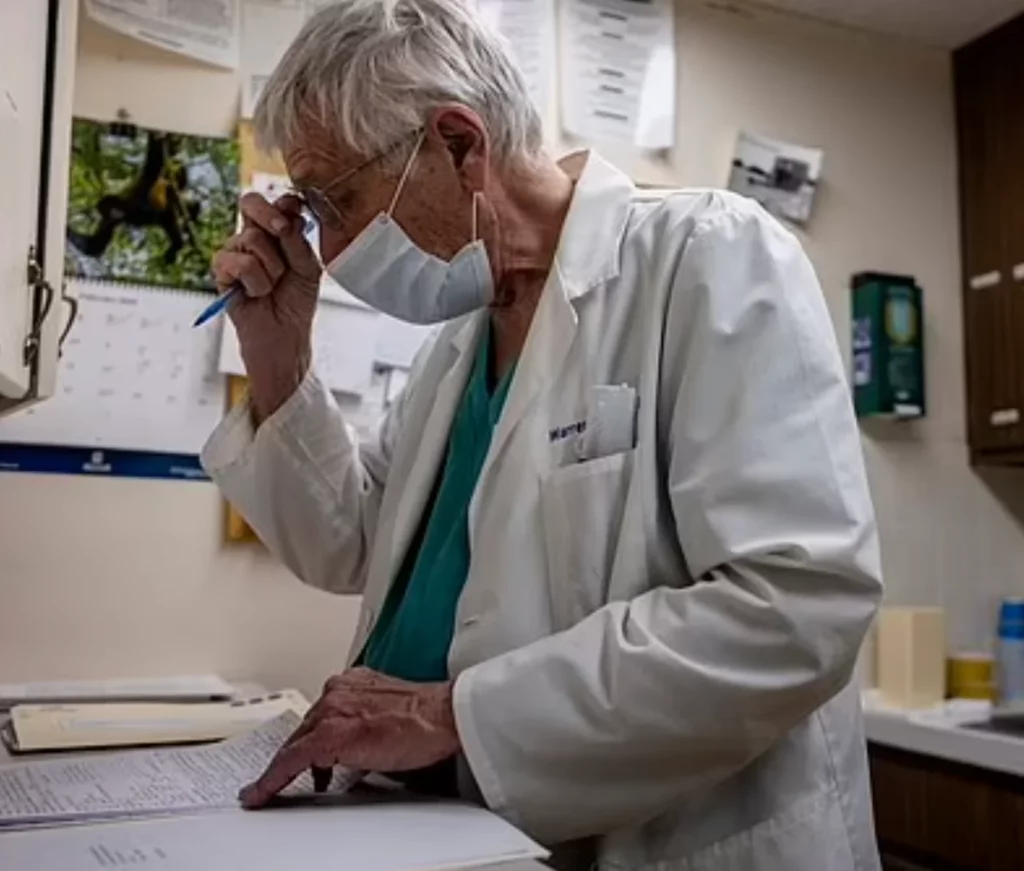In Boulder, Colorado, Dr. Warren Hern, an 86-year-old physician, continues to provide specialized services that few doctors offer in the United States.
His clinic, often the target of protests and accusations, is one of the last places where women can seek late-stage abortions, and he is the only doctor openly performing terminations after eight months.
Dr. Hern’s work, which he describes as essential to women’s health, goes beyond standard procedures, with strict criteria guiding each case he takes.
Having faced personal and professional threats, including an assassination attempt in 1988, Dr. Hern’s commitment remains unshaken, even under constant scrutiny and criticism.

“I’m not an abortion dispensing machine,” he clarified in a recent interview, explaining that he only performs these procedures when severe fetal abnormalities or health risks to the mother are present.
In one instance, he treated a woman at 35 weeks who learned that her fetus had suffered a stroke, resulting in total brain failure—a devastating circumstance that left few options.
Since the 2022 reversal of Roe v. Wade, Dr. Hern’s services have been in greater demand, as women from states with restrictive abortion bans now turn to his clinic.
He estimates a 50 percent increase in patients seeking late-term abortions, a surge that underscores the increasingly limited access to reproductive care nationwide.

With abortion access becoming a major topic in the upcoming presidential election, Dr. Hern’s clinic has become a lifeline for those facing barriers in states that have outlawed the practice.
Late-stage abortions, a complex and often misunderstood procedure, are generally conducted due to severe fetal complications that can’t be detected until the third trimester.
Conditions such as Dandy-Walker malformation, where the brain’s movement center fails to develop, and trisomy 13, a genetic disorder causing profound intellectual disabilities, often lead families to seek Dr. Hern’s care.
Another issue is agenesis of the corpus callosum, a brain defect undetectable until late in pregnancy, which results in significant cognitive and physical challenges for the fetus.
At Dr. Hern’s clinic, third-trimester abortions are intricate, multi-day procedures, typically costing around $6,000 due to their complexity.

Patients often rely on nonprofit funds and state support to cover these costs when insurance does not provide sufficient coverage.
“These are tough calls, and I’m here to help people, but I’m not going to give it to anybody who walks in the door,” Dr. Hern stated, reinforcing his strict guidelines.
Though late-stage abortions remain rare in the U.S., with CDC data indicating they account for less than one percent of all procedures, they are occasionally necessary.
In states without restrictions, such as Minnesota, cases are still uncommon, with only two late-term abortions reported last year.

Despite the risks and controversy, Dr. Hern’s clinic has provided essential services to women who feel they have nowhere else to turn for help.
His commitment to this work is clear, as he noted, “If having the abortion at any point in pregnancy is between fifteen and twenty times safer than carrying the pregnancy to term, what is the possible justification for forcing a woman to continue the pregnancy if she doesn’t want to?”
Featured Image Credit: (Canva Pro)





